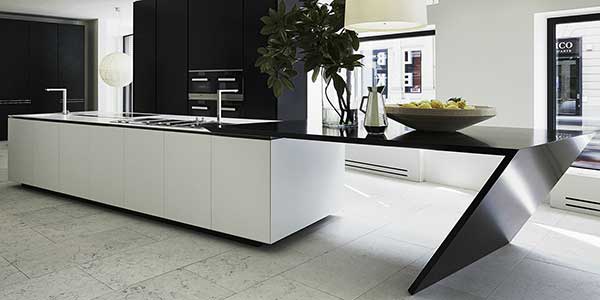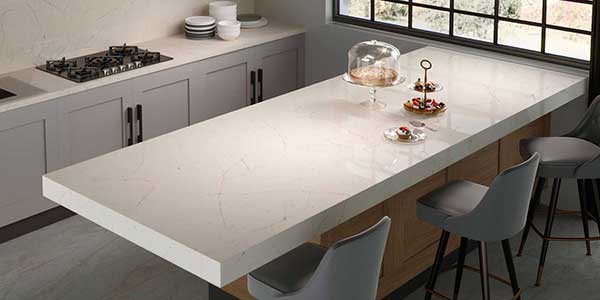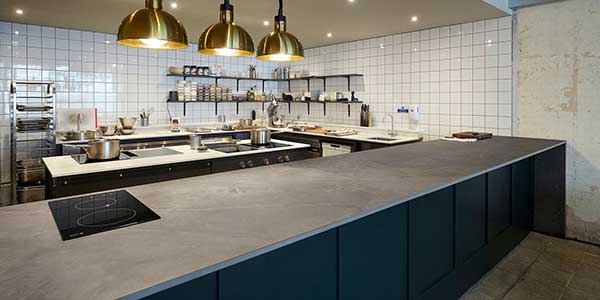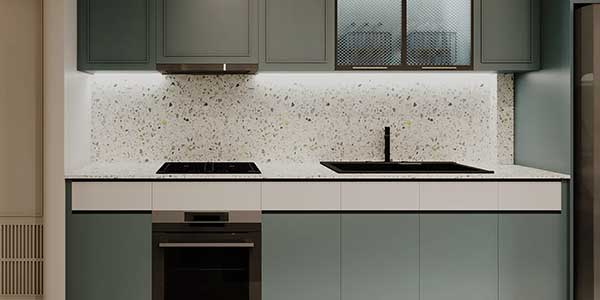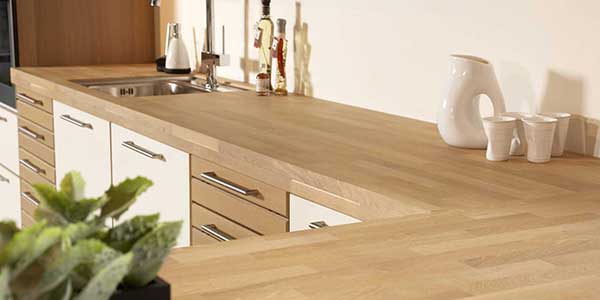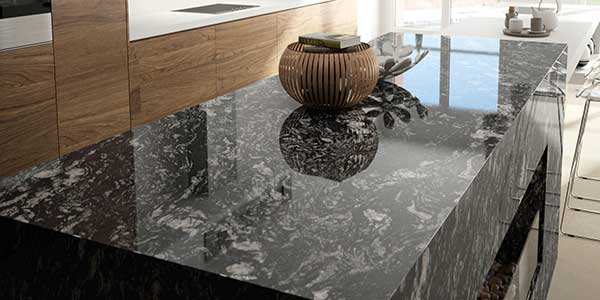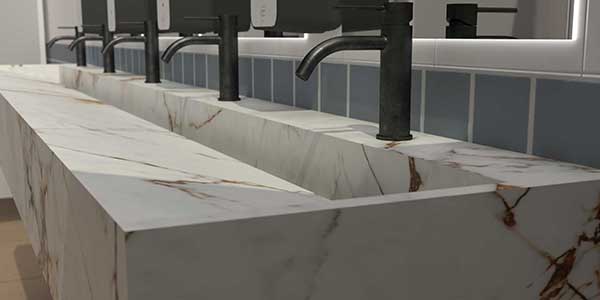Granite FAQ’s – What is Granite?
Granite is a hard igneous rock, formed from molten magma. The magma cools and solidifies under extreme pressure deep within the earth. Granite is very popular within the construction industry due to its hardness and durability.
Granites are also renowned for their depth of colours. They can range from pink to grey, depending on their chemistry and mineralogy. Available in tiles and slabs, it is perfect for a wide range of uses within the home.
Why is Granite so popular for worktops and work surface?
The natural beauty of Granite is breath taking and timeless. A piece of granite is formed over thousands of years can be brought into your home. Granite never goes out of fashion and has a style and elegance all of its own. No two pieces of Granite are alike ensuring that each worktop is a unique creation. Visually stunning effects can be created in the kitchen by the use of this remarkable material with bluestone-uk.com skilled masons hand crafting each worktop to the highest quality.
How do you clean granite?
Granite can generally be wiped clean with a clean damp cloth, and buffed dry where necessary with a microfiber cloth. If a deeper clean is required to remove grease or oil deposits, a mild, well diluted detergent, or a stone specific cleaner can be used. Under no circumstances should acidic or abrasive products be used to clean a granite worktop as this can damage the surface of the stone. It advised that any spillages of an acidic nature, e.g. wine, vinegar, fruit juices etc should not be left to lie on your worktop for long periods, they should be neutralized by applying plenty of clean water and wiped up, rinsed and the surface buffed dry.
How do I remove limescale deposits?
In hard water areas there is potential for limescale to build up on surfaces where water is left to dry out. To avoid excessive build ups, always wipe up any standing water, with a cloth and buff dry. Where any build up does occur, then they should be removed gently, using a weak white vinegar solution and a soft nylon bristled brush to agitate the build up until it breaks up, and clean be washed away. Under no circumstances should a chemical limescale remover be used, as these are highly acidic. For a long term alternative to the above, a water softening device could be fitted to the mains water supply, to remove the lime from the water before it leaves the tap.
